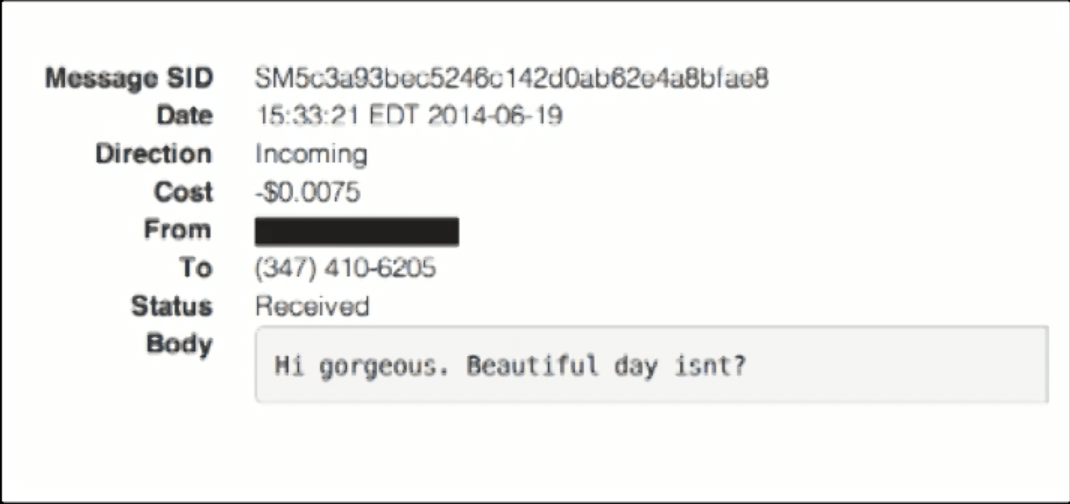Mimi Onuoha is a Nigerian-American researcher and artist who has produced work examining the implications of data collection. In her Eyeo Talk – “How We Became Machine Readable” Onuoha discusses the practice of data collection, and how something seen as objective and accurate can be skewed and riddled with bias in reality.
In data science, people are seen simply as objects of data collection. In project called *69, Onuoha uses men who catcall her as objects of data collection. She was moved by emotion which is evident in the fact that she took note of how she felt after every “grotesque” interaction. To collect her data on these catcallers, Onuoha puts herself on the frontlines of the experiment by handing a fake phone number to the assailant herself. She then uses an automated system to send them a message about how their actions made her feel. In this specific project Onuoha notes that neither the manner in which the numbers were collected nor what she did with them afterwards have any importance. What matters is what led to the generation of the dataset–a factor which is often overlooked. In this case it was men who couldn’t keep their vulgar comments to themselves. Someone who reviews this data with all its context has no choice but to feel the emotion that Onuoha felt firsthand: confusion, anger, vulnerability. Onuoha puts humanity back in data, or in her words, “reunites artifacts with the process of collection”.


In her experiment to reveal subjectivity in data disguised as a “visualisation project” Onuoha collects geolocation data from various groups of people–families, coworkers, roommates, partners–and comes to another conclusion about data: “If you haven’t considered the collection process you haven’t considered the data”. Datasets are the results of their means of collection and scientists tend to prioritize things that fit patterns of collection in order to eliminate outliers. However these outliers are essential to a complete dataset. Although it tends to resist metrification, is harder to collect, and can even be beneficial in its non-existence, these”complicating factors” as Onuhoa calls them reveal patterns of exclusion that are all too common in data collection, and can negatively impact entire communities of people.
By sharing this knowledge with people, that data collection is “contextual” and “mediated”, Onuoha hopes to level the knowledge playing field and prompt people to think more critically about where their data is coming from.